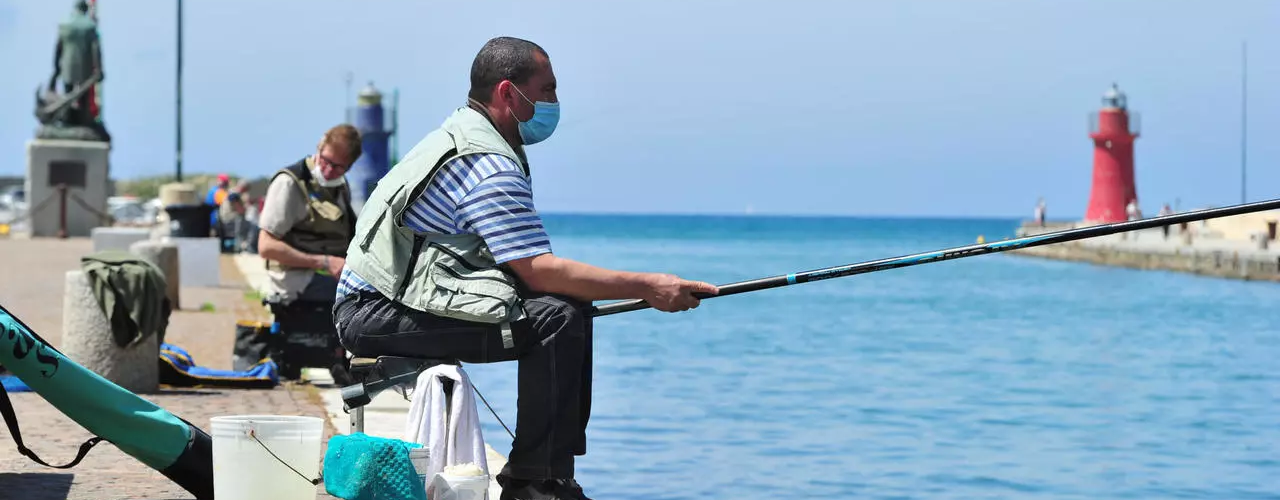The Covid-19 pandemic has officially killed over 473,000 people in the world and infected over 9.1 million, including more than four million now considered cured, since China first reported the outbreak in December.
Europe, continent most affected, continues its deconfinement with the reopening by Spain of its borders to Europeans, while Latin America in turn crosses the milestone of two million infected people and that China carries out massive tests to contain a new outbreak in its capital.
Latin America and the Caribbean, the new epicenter, passed the two million contamination mark on Saturday, after the USA and Canada (more than 2.3 million mainly in the United States) and Europe – more than 2.5 million, more than half of which in Russia, the United Kingdom, Spain and Italy.
Asia, the Middle East, Africa and Oceania are below the threshold of one million cases. But a rebound has worried China since last week with more than 220 new cases. In Beijing, 2,000 test sites have already taken 2.3 million samples, according to the agency Chine Nouvelle. The country will also inspect imported food products.
In Latin America, half of the cases are recorded in Brazil which crossed the barrier of a million cases on Saturday and, with nearly 50,000 deaths, is the second most bereaved country in the world behind the United States.
In Peru, which is experiencing its 13th week of total containment, the official toll exceeded 250,000 contaminations on Saturday for 7,861 dead. The death toll also exceeds 7,000 dead in Chile. He passed 20,000 dead Friday in Mexico.
The question is, if you live in Europe, where should you go on holiday for a safe vacation? Below are our top 3 choices.
Traveling to Spain
After announcing that it plans to keep its borders closed with France until July 1, Spain backtracked and announced on June 14 that it will welcome visitors from other European countries from June 21. At midnight, on the night of Saturday to Sunday June 21, Spain therefore reopened its borders with France, its ports and airports to nationals of the European Union.
Holidays in Spain are now possible.
The Spanish themselves now have the right to move freely in the country. However, it is not until July 1 that the border with Portugal will reopen. Tourists of all nationalities will no longer be subject to a quarantine at the entrance of the country, but will however have to respect rules of social distancing (1.5 meters and wearing a mandatory mask from 6 years) in open or closed places (restaurants, ranges …) when the safety distances cannot be guaranteed.
To guarantee protection and hygiene measures, 600 agents from the Ministry of Health are deployed at airports to check travelers arriving from abroad, ask them for their place of residence and take their temperature. Suspicious cases will be automatically examined by a doctor.
Traveling to Greece
Greece reopened its borders on June 15 to certain countries. From 15 to 30 June 2020: for arrivals at Athens International Airport for passengers from Albania, Belgium, France, Italy, North Macedonia, the Netherlands, Portugal, from Spain and Sweden, and from countries outside the Schengen area, a compulsory test will be carried out on arrival.
Passengers tested will have to confine themselves for 24 hours in the accommodation of their choice (at their expense) in Athens until reception of the results of their test. A contact form will be provided to all passengers at check-in or on board the aircraft, to be completed and given to the authorities upon arrival in Greece, specifies the Hellenic National Tourist Office in a press release dated June 16.
A compulsory quarantine will be set up in the event of a positive result, in a hotel provided for this purpose. Passengers from other destinations will only be subject to random tests upon arrival in Athens.
All travelers arriving in Greece will need to complete an online Passenger Location Form (PLF) with their contact information on site. A random sampling test will be carried out for all countries and airports of departure. Arrivals by boat from abroad will again be possible.
Traveling to Portugal
Since June 15, travelers from Schengen countries, except Spain and Italy, can go to Portugal by air. The border with Spain remains closed until June 30 inclusive. Compliance with quarantine is not required upon arrival in Portugal.
Travel by land is only authorized at certain crossing points and for certain categories of people (with supporting documents): Portuguese nationals and residents in Portugal, people traveling for a family purpose, seasonal workers proving a employment contract or a certificate from the employer, health personnel under the terms of bilateral agreements on the provision of care or diplomatic personnel, the armed forces or the security forces.
Currently, it is possible to access the country by four new crossing points by road in the North of the country: Melgaço, Miranda do Douro, Monção and Vila Nova de Cerveira, in addition to the nine already authorized: Valença (Viana do Castelo), Vila Verde da Raia (Chaves), Quintanilha (Bragança), Vilar Formoso (Guarda), Termas de Monfortinho (Castelo Branco), Marvão (Portalegre), Caia (Elvas), Vila Verde de Ficalho (Beja) and Castro Marim (Faro). The control of land borders remains mandatory with mandatory proof.















